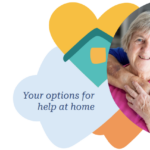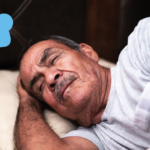You have a right to dignity over risk—the capacity to make decisions about your care and services and understand their potential risks. Your care providers must ensure that you understand potential risks and are well-informed about your choices. This guide covers the dignity of risk, how you and your provider work together to assess risks, and a short case study provided by the Department of Health.
What is dignity of risk?
The dignity of risk supports your independence to choose your care and services, which may include taking some element of risk. Dignity of risk is one element of the first aged care quality standard – consumer dignity and choice. This quality standard ensures that consumers are treated with dignity and respect, maintain their identity, make informed choices about their care and services, and live the life they choose.
Why is dignity of risk important?
Regardless of age, all adults have an equal right to decide how they wish to live. This does not disappear as you age – you have a right to continue making these important decisions as you get older.
However, making decisions in everyday life involves an element of risk. Your provider, your carers, and your family must all assist you in understanding the risks of the decisions you make. Your providers and workforce must understand what you find important and not judge you based on your decisions.
What are risks?
Risks may be about you, your carers, other staff, and the community. Providers and your carers have professional obligations to ensure that the services they supply are safe and support care recipients. For example, a care recipient may wish to perform daily house maintenance tasks independently, but doing so could pose a risk to their safety. Risks can also apply to the community, such as using a mobility scooter to commute along footpaths.
How are you involved in decisions about risks?
You have a right to choose the care and services you receive and maintain your independence with day-to-day tasks. You can tell your provider and workforce what matters to you and which care services you want. You must be actively involved in decision-making and problem-solving to make your decisions while reducing risk where possible.
You must understand the risks you are taking, weighing up the potential benefits and possible harms of your decisions. You will work with your provider to assess these risks and decide which is proportionate to the risk and your right to independence.
How are providers involved in decisions about risks?
Your provider, workforce, and family all work with you to assess potential risks. They must ensure that you understand the potential risks to yourself, your carers, and the community that your decisions have. They must help you understand how risky it can be managed to help you live your life the way you choose.
When assessing risks, providers must involve consumers to find solutions that are the least restrictive of their choices. While every effort is made to meet these choices, providers may exclude services that pose unacceptable risks to the safety of care recipients.
Case Study – Olga
The following case study is a shortened version of a case study provided by the Department of Health. Visit the Home Care Packages Program operation manual to read the full case study.
Olga
Olga has been receiving care services for several years, but has slowly been needing more help around the house. She has dementia, and her children are concerned that she may not be completing daily cleaning tasks such as laundry, ironing, and bed-making. They ask her provider to supply these services.
Olga’s provider works with her to assess the risks in this scenario and identify what decision she wants to take. Olga says she wants to keep doing as much housework and personal care as possible. Her carers believe changes may be unnecessary and make Olga feel less independent.
The main priority is Olga’s safety, which is currently not at risk. However, due to her dementia, there are hygiene risks if she starts having issues completing these tasks. Olga’s care coordinator works with her to ensure that she understands the concerns raised by her children and the risk this could have on her health. Olga decides that these risks outweigh her desire to complete some of these daily tasks and agrees to have some assistance and supervision.
Olga’s provider explains to her children the importance of maintaining her sense of independence, self-worth, and purpose. They explain that Olga’s health and safety risks have been assessed in collaboration with Olga, and that these will be continually monitored.
You have a right to make choices, even if they involve risk. As an aged care consumer, you have various rights and responsibilities. Ensure you understand these rights, and know how to make an aged care complaint if necessary.








